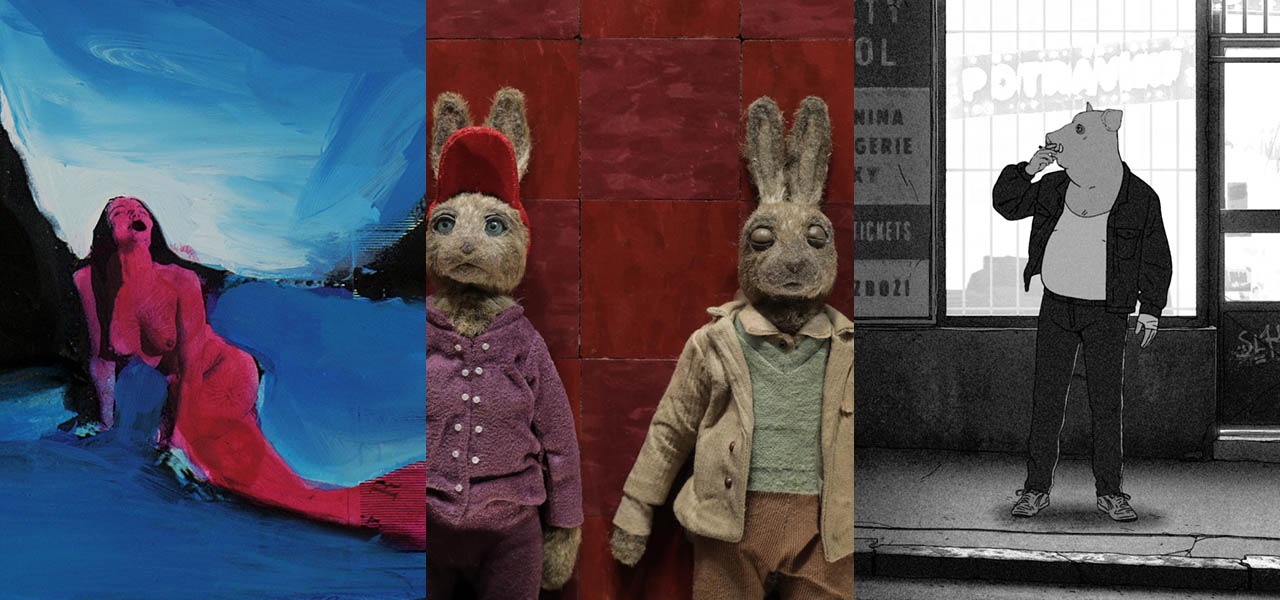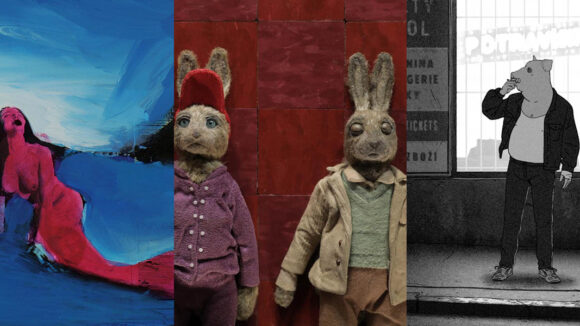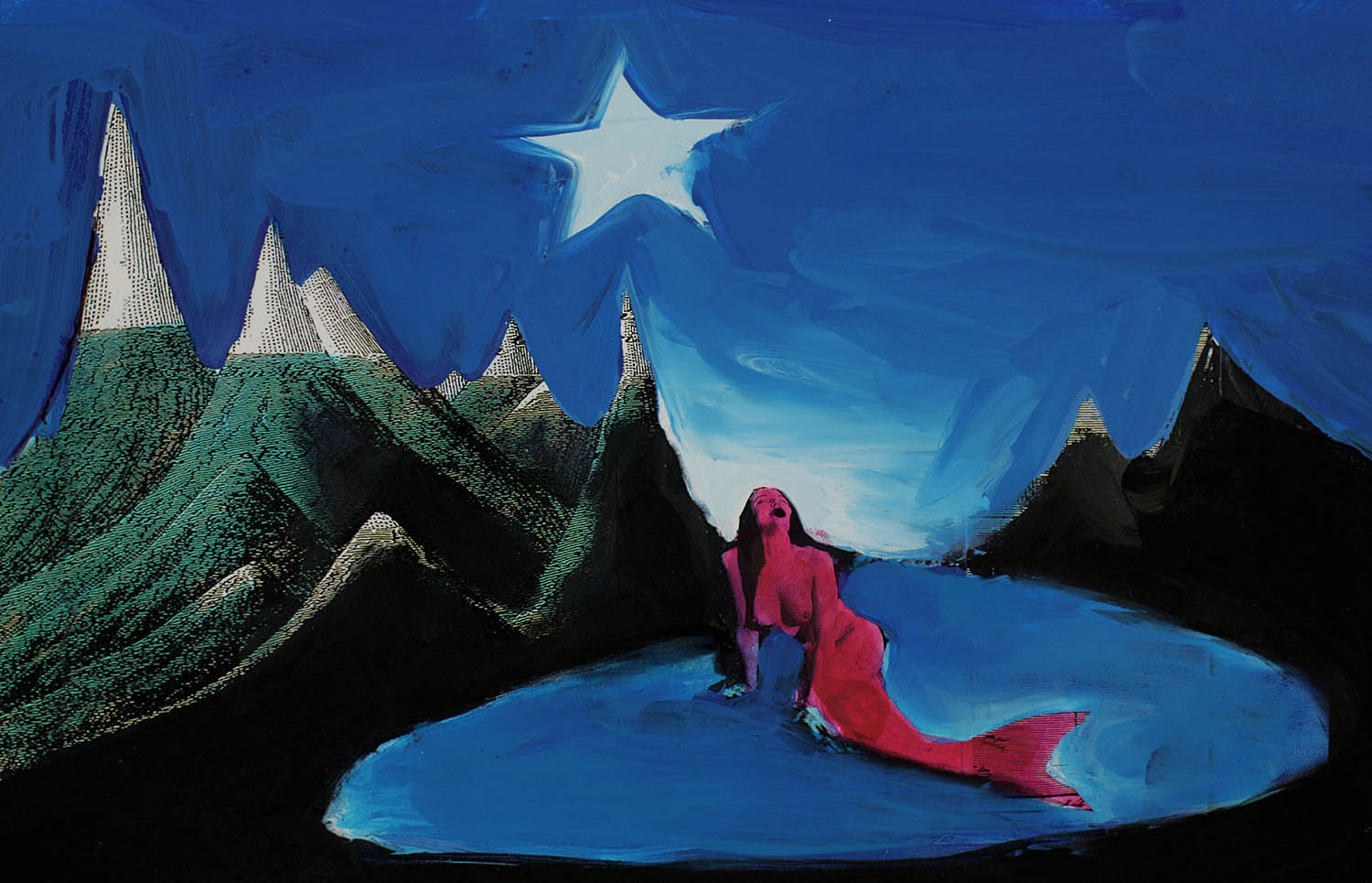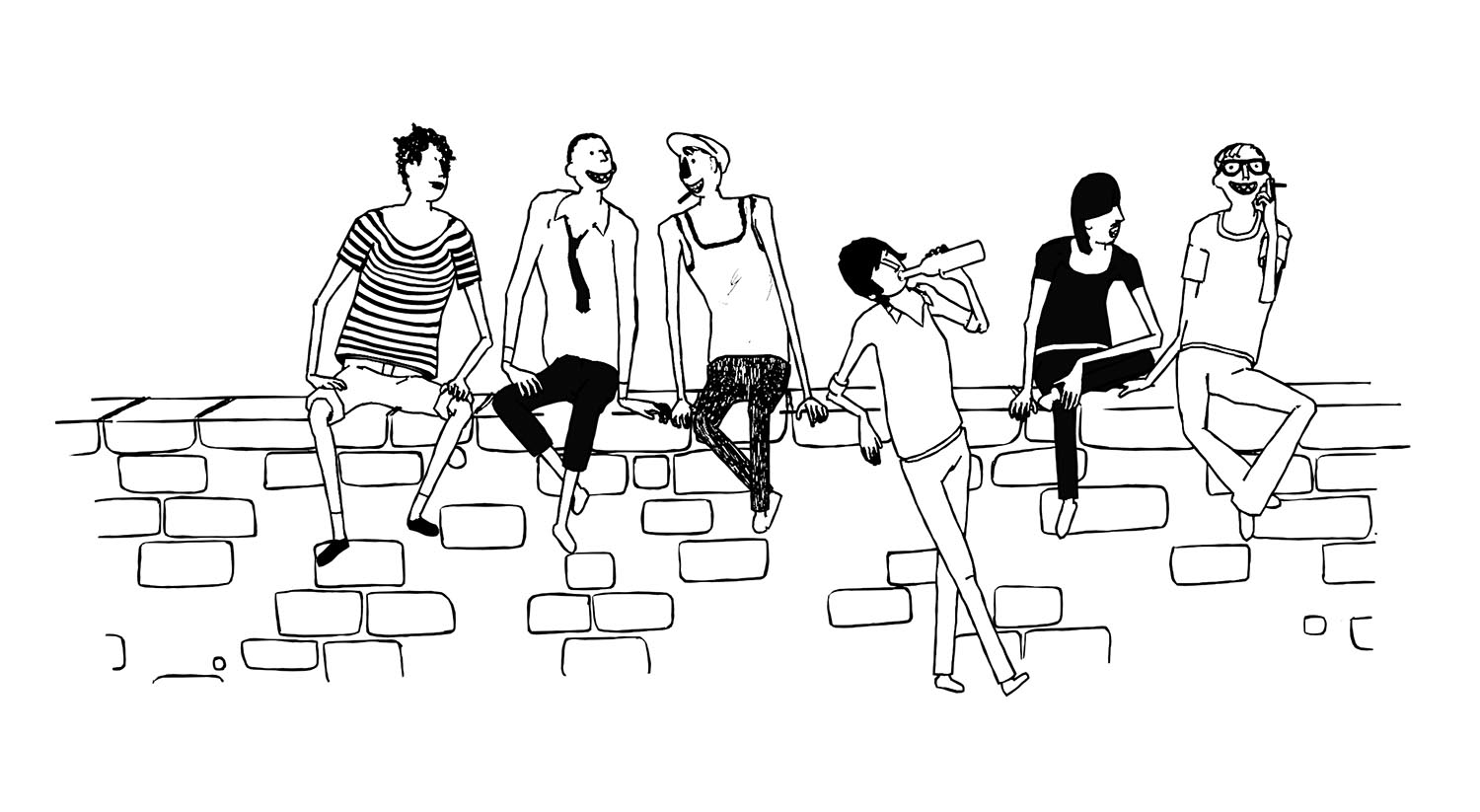

10 Shorts You Won’t Want To Miss At Annecy 2024
It’s that time of the year again when the animation world descends upon the picturesque French Alps for the Annecy International Animation Film Festival.
The soul or heart of the festival is the competition for short animation films. This year there are 67 films competing across the various short competition categories.
In the main shorts competition, there is a record low of 31 competition films, which reflects the disturbing trend towards longer short films. I’ll resist a diatribe here about why this tendency (perhaps influenced by live-action trends?) is problematic and unnecessarily eating up screening spaces. In fact, most of the films could be considerably shorter and just as effective. Festivals cannot simply add more screening spots (that costs $$$), so it means fewer chances to be selected.
On the positive side, some of the longer films have been very strong, which is what has created this programming logjam. It’s a good problem I suppose, but still a problem that will have to be addressed by festivals if the trend continues. (Perhaps festivals need to lower the maximum running time from 30 to 20 minutes?)
This year’s competition is filled with solid works including Ottawa International Animation Festival grand prize winner, Miserable Miracle (Ryo Orikasa), Return to Hairy Hill (Daniel Gies) and the wild Drizzle in Johnson (Ivan Li), among others. To make things a little easier for attendees, we’ve selected 10 diverse new films from the short competition that you should keep an eye out for in the haze and craze of the festival. Trailers have been included when available.
Beautiful Men, Nicolas Keppens (Belgium, France, Netherlands, 2023, 18:43)
From the director of the quirky Easter Eggs (2021) is a fresh new work about three balding brothers (Steven, Bart, and Koen) who head to Istanbul for hair transplants. While they wait together in a hotel for an appointment, their respective anxieties rise to the surface. A touching, absurdist stop-motion work sprinkled with moments of deadpan humor that explores family, mortality, and masculinity in crisis.
Maybe Elephants (Kanskje det var elefanter), Torill Kove (Norway, Canada)
Oscar winner Torill Kove (The Danish Poet, My Grandmother Ironed the King’s Short, Me and My Moulton) returns with another playful visit to the director’s eccentric family. Kove and her sisters are in their teens. They’re coming of age and need guidance. The mother, though, is restless and seeking change. When the father accepts a job in Nairobi, the family embarks on an experience that will forever change them. A gentle, playful, and beautifully designed take on a family at a crossroads.
La Voix des Sirènes, Gianluigi Toccafondo (France/Italy)
Deep under the sea, a siren gives birth to two children. When an underwater creature attacks the family, one of the children is forced to flee to the surface, where she discovers unexpected pleasures. The Italian master (La Coda, The Criminal, and Pinocchio) uses his distinctive paint and collage style in a beautiful and beguiling tale of mermaids, sirens, seahorses, frogs that morph into crocodiles, and assorted creepy underwater creatures.
Highlighted by varying shades of blue, green, yellow, and pink, Toccafondo’s familiar ‘stretched’ paintings create a haunting, sensual, and gorgeous atmosphere (each frame is a standalone work of art) as he explores identity, mortality, nature, and the sometimes tricky concept of beauty.

Le Tableau, Michèle Lemieux (Canada)
The second pinscreen film by Michèle Lemieux (the previous was Here and the Great Elsewhere, 2012) uses the famous Alexeïeff-Parker pinscreen to create a mesmerizing study of Queen Mariana of Austria through her 1652 portrait by Velázquez.
Masterfully playing with shadow and light, Lemieux captures the profound pain and tragedy of Mariana, who at age 14, married her uncle, who was 30 years her senior. She then watched three of her five children die, and later had a child with, allegedly, severe mental challenges. All of this happening against the backdrop of political and economic turmoil in Spain. The use of the pinscreen technique imbues the story with a unique ambience that is simultaneously eerie, tender, and soothing.
Papillon, Florence Miailhe (France)
An elderly man takes a swim in the sea. With each stroke, his memories drift to the surface, taking him back to early childhood swims, competitive swimming, first love, parenthood, Olympic races, and concentration camps.
Inspired by the life of Alfred Nakache, a North African swimmer who competed for France in the 1936 Olympic Games, Florence Miahle (who received an honorary Cristal at Annecy 2015 for her body of work) uses her lively, metamorphic, under-the-camera painterly style (which is a perfect companion to the transformative nature of water) to beautifully, effectively, and efficiently capture a complex life submerged in joy, fear, love, and tragedy.
Percebes, Alexandra Ramires, Laura Gonçalves (Portugal, France)
In a year when Portugal is in the spotlight at Annecy for their animation achievements, it’s fitting that the country is well represented in competition by the acclaimed duo, Alexandra Ramires (Elo) and Laura Gonçalves (whose last film, The Garbage Man, won a room full of awards, including the grand prize at Animafest Zagreb in 2022).
Percebes (also known as gooseneck barnacles) are an expensive and quite visually unappetizing (some call them “Lucifer’s Fingers”) seafood delicacy popular in Galicia, Spain, and Algarve, Portugal. Set against the background of Algarve, the journey from birth to meal of this odd (and apparently delicious) shellfish is described through interviews with fishermen, locals, and tourists. With beautiful watercolor designs and a chill soundtrack dominated by the ambient sounds of the sea and the passing voices of locals and tourists, Percepes is a meditation on local culture, the conflicting nature of tourism, and the endless joy of a life by the sea.
The Car that Came Back from the Sea, Jadwiga Kowalska (Switzerland)
Poland. 1981. Young Leszek spends the days with his friends. The store shelves are empty, not that they have money for much anyway. There are no prospects for much of anything in this life. They spend their days drinking, smoking, laughing, and talking about their shared passion: cars.
Against the odds, Leszek manages to buy himself a run-down car. Excited to have such a rare “home on wheels,” the group decides to drive to the Baltic Sea.
This deftly edited work of playful black-and-white minimalism is a warm appreciation of friendship, adventures, and savoring those fleeting, seemingly minor moments of joy in the face of stifling political and economic realities.

Hurikán, Jan Saska (Czech Republic, France, Bosnia and Herzegovnia)
The (literally) pig-headed Hurikán has a problem. He loves to drink, but his favorite beer stand is running out of beer. When Hurikán offers to get a new keg of beer for the bartender (whom he’s also hot for), he ends up on a wild odyssey through the districts of Prague. Beaten, robbed, chased, and extremely thirsty, Hurikán reaches his breaking point.
Finally, a modest and honest comic film (a long-awaited follow-up to Saska’s hilarious debut, Happy End) with no deep lingering existential or political musings, just a simple, personal quest to quench one’s thirst.
Tennis, Oranges, Sean Pecknold (USA)
In this heartbreaking and surreal stop-motion work, a burned-out robotic vacuum leaves its job cleaning hospital floors to find a higher purpose in life. Meanwhile, two rabbits live a feckless and lonely daily life in a nearby community center until a chance encounter with the vacuum inspires new dreams and desires.
Directed by Sean Pecknold, who previously directed a number of commercial projects and music videos, including Featherweight (2021), Tennis, Oranges, with its Chaplinesque undertones, has just the right balance of pathos, charm, and substance to make even the most cynical Annecy viewer a bit bubbly under the eyes.
Circle, Joung Yumi (South Korea)
A young girl appears, draws a circle and departs. A sequence unfolds. First, a man enters the circle and sits atop his briefcase. A woman follows and sits on the ground to eat. Other people swiftly join. The circle quickly becomes crammed with people. Finally, the girl reappears and attempts to fix the predicament she created.
A subtle, deadpan portrayal, by the director of Waves and Love Games, of the tricky dynamics of boundaries, borders, and habits, underscoring how rapidly they can shift from a space of hope and potential can morph into one of internment and inertia.
